Local SEO Citations: What They Are & How to Use Them
Forty-six percent of all Google searches have local intent. That means nearly half the time someone types something into the search bar, they’re looking for something nearby, like a dentist or a plumber.
If your business isn’t showing up in those results, you’re losing easy wins. That’s where local SEO citations come in. These are the digital breadcrumbs that help search engines (and customers) find and trust your business.
Citations aren’t just for maps and directories anymore. With the rise of AI Overviews and platforms like ChatGPT and Perplexity pulling from trusted sources, having accurate, widespread citations can increase your visibility across all forms of search.
In this post, I’ll break down what local citations are, why they matter more than ever, and how to build them the right way, without wasting time on low-value directories.
Local SEO citations are online mentions of your business’s name, address, and phone number, commonly known as NAP. You’ll usually see these on business directories, review sites, apps, maps, and social platforms.
These citations act as digital trust signals. When they’re consistent and accurate across multiple platforms, search engines see your business as more reliable, which can improve your visibility in local search results.
As an added note, AI tools like ChatGPT, Perplexity, and even Google’s own AI Overviews increasingly rely on structured business data from trusted citation sources.
You can create citations manually or through tools (more on that soon), but either way, you need to keep them updated and consistent across all listings.
There are two broad categories of citations: general or core platforms and industry-specific directories. Both serve a purpose. The key is knowing which ones your audience actually uses.
Google Business Profile is one of the most important citation sources. Complete your profile with hours, categories, photos, and reviews. It directly feeds into Google Maps and local pack rankings, making it a must-have.
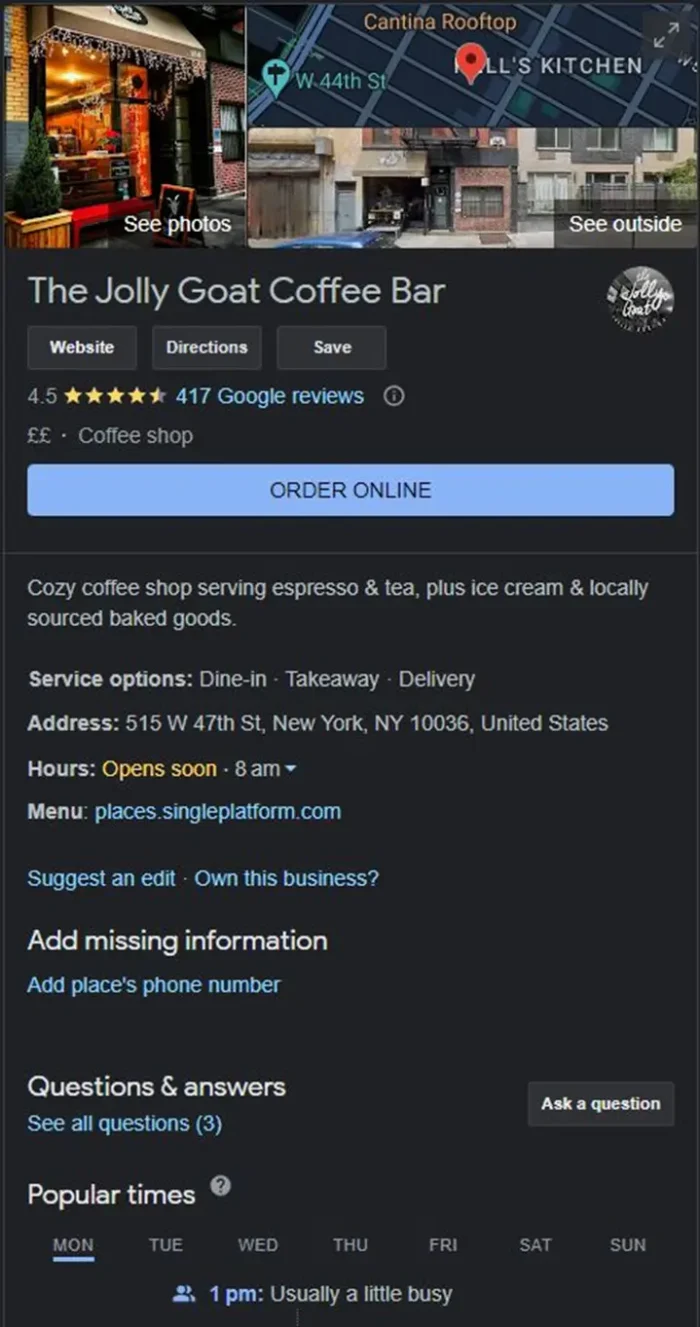
Yelp is another top-tier directory. A well-optimized listing here adds authority and may drive referral traffic.
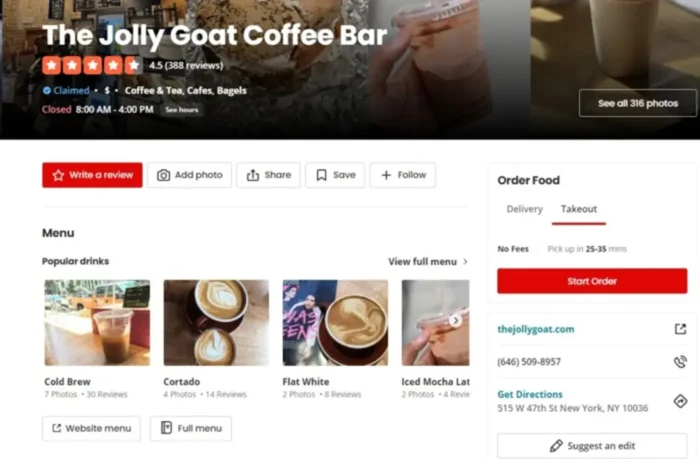
Bing Places for Business works similarly to Google’s platform and is still worth claiming, especially if your audience includes older users or anyone in corporate environments where Bing is the default search engine.
Facebook Business Pages double as citations and engagement hubs. They show up in search and allow customer interaction.
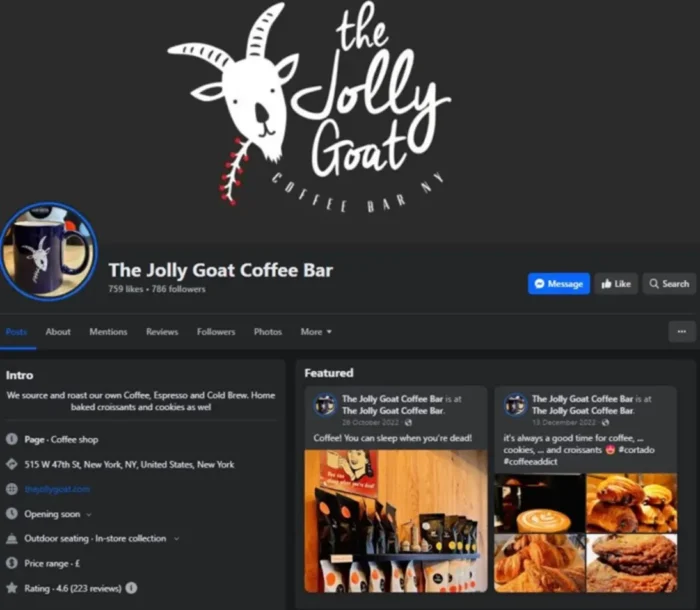
Apple Business Connect is important because Siri and Apple Maps pulls this information.
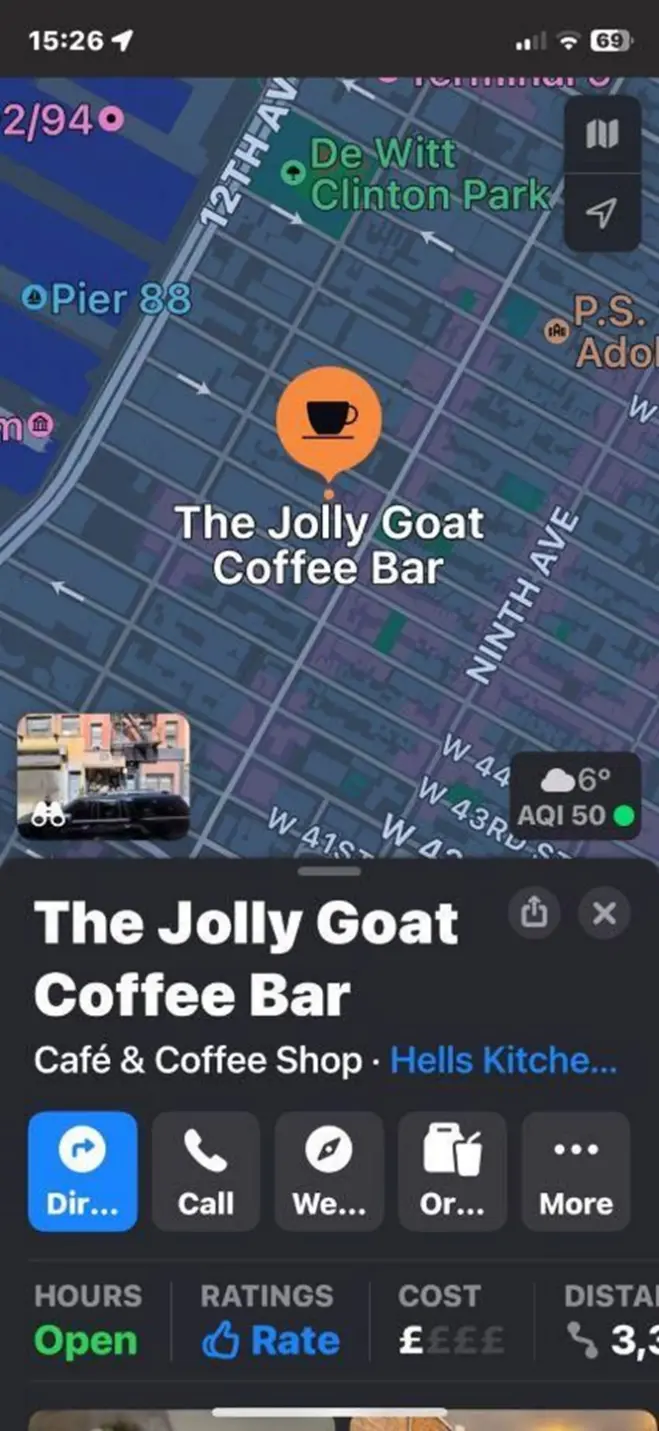
Niche platforms like OpenTable (restaurants), Avvo (legal), Zocdoc (medical), or TripAdvisor (travel) carry extra weight in their verticals and often convert better.
Local chambers of commerce, review platforms like Trustpilot, and neighborhood networks like Nextdoor also count as valuable citations when relevant.
Local citations do more than just increase visibility. They build trust and help search engines connect the dots between your business and the communities you serve. That’s foundational for strong local search marketing.
While exact percentages tied to citation impact aren’t publicly available for 2024, multiple sources still cite NAP consistency and citation volume as foundational local ranking factors. For example, SOCi reports that 80 percent of U.S. consumers search for a local business online at least weekly, and if your listings aren’t showing up accurately, you’re not in the running.
Citations also support E-E-A-T (experience, expertise, authority, trust), all key signals Google looks for when ranking local results.
A good starting point is generally 30 to 50 accurate, high-quality citations to build a strong foundation and establish a baseline. Depending on your industry and market size, you may need more.
Even one inaccurate listing can hurt trust and confuse Google’s local algorithms.
Platforms like Google’s AI Overviews and large language models (LLMs) like ChatGPT, and Perplexity pull data from structured, verified sources. That means your business listings on sites like Google Business Profile, Yelp, Bing Places, and TripAdvisor may be referenced automatically, if the information is accurate and consistent. See the example below from ChatGPT:
Even addresses can pop up in the results if they are online for the tools to pull.
LLMs don’t crawl the web like Googlebot, but they rely heavily on trustworthy, indexed data. A clean citation profile gives your business a better shot at showing up in AI summaries, especially for local service queries.
If your listings are messy or missing key info, you risk being ignored altogether, even if you rank well in traditional search.
This is where citation building becomes a proactive strategy, not just a foundational one.
SEO citation building is the process of actively creating and maintaining listings for your business across third-party sites, like directories, maps, review platforms, and social networks.
Think of it like digital plumbing. You’re creating multiple, consistent “pipes” that point back to your business, and every new, accurate citation helps search engines and AI tools understand who you are and where you operate.
Let’s say you run a boutique gym in Chicago. Citation building would involve creating or updating your listings on Google Business Profile, Yelp, Bing Places, Apple Maps, and niche platforms like ClassPass or Mindbody.

It’s not a one-and-done task. Building citations takes ongoing effort, especially if you move locations, change your phone number, or expand services.
Most businesses use citation-building tools to scale this process and stay organized. That’s what we’ll cover next.
SEO citation building can be time-consuming if you’re doing everything manually. That’s why many marketers rely on specialized tools to create, audit, and manage citations at scale.
Here are three platforms that can help simplify the process.

BrightLocal is an all-in-one platform for managing local SEO. It includes tools for citation building, auditing, and cleanup.
You can submit your business info to 100+ general and niche directories, fix inconsistent listings, and remove duplicates, all from one dashboard. It also tracks your citation status over time, so you can see what’s live, pending, or missing.
One standout feature is its ability to prioritize directories based on your industry and location, helping you focus on what actually moves the needle.
Pricing starts at $39/month, with individual citation submissions available from $2 per site.

Whitespark is best known for its Local Citation Finder, a tool that helps you discover where your competitors are listed and where your business is missing out.
You can run audits, track your existing citations, and build new ones through customized campaigns. The platform also includes tools for citation tracking, reporting, and outreach.
Whitespark offers both DIY tools and fully managed services, making it flexible depending on how hands-on you want to be.
A free version of the Citation Finder gives you basic data on one campaign. Paid plans start at $39/month, with custom citation-building services priced separately.
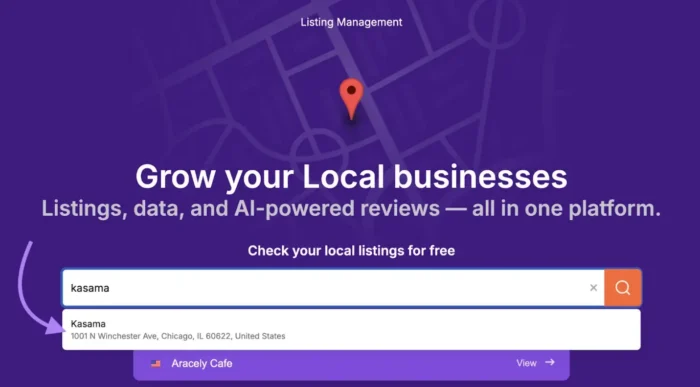
Semrush Listing Management helps you distribute and manage your business info across key directories from a single dashboard. You can update your name, address, phone number, and other details in one place, and it syncs across dozens of platforms.
The tool also flags issues like duplicate listings or inconsistent NAP data, so you can fix errors that hurt your local SEO. You can monitor your presence on Google, Yelp, Apple Maps, and other places, while tracking how visibility changes over time.
A free scan gives you a snapshot of your current listings. Full access starts at $20/month per location.
Citation building isn’t hard, but doing it well takes attention to detail and long-term consistency.
And don’t forget to support your citation strategy with strong local link building. The two go hand-in-hand when it comes to building local authority.
Local citation building means creating and maintaining business listings across third-party platforms like Google, Yelp, and Facebook. These listings include your name, address, phone number (NAP), and other key details. Accurate, consistent citations help search engines validate your business and improve your local SEO.
What are local SEO citations?
Local SEO citations are online references to your business’s name, address, and phone number, even if there’s no link. You’ll usually find them on directories, review sites, apps, or social platforms. When these citations are consistent and appear on trusted sites, they improve your visibility and authority in local search.
How do local citations help SEO?
Citations tell search engines that your business is real, active, and relevant to a specific location. They also reinforce your trust signals and support local ranking factors like E-E-A-T (experience, expertise, authority, trust). Inconsistent or missing citations can lower your chances of showing up in map results or AI-generated summaries.
How does citation building impact a business’s online visibility and local search rankings?
The more accurate citations you have across trusted sources, the easier it is for search engines to connect your business to relevant searches. Citation building improves your local rankings, boosts discovery in maps and directories, and increases your credibility with searchers.
How to build local citations?
Start by auditing your existing listings with a tool like BrightLocal or Semrush. Then, claim and complete your profiles on top directories like Google Business Profile, Yelp, and Bing Places. For more tips, check the best practices section above.
What is NAP consistency?
NAP stands for name, address, and phone number. NAP consistency means keeping those details exactly the same across every platform. Even small mismatches can confuse search engines and hurt your rankings. Consistent NAP is also critical for voice search, map listings, and AI-generated search summaries.
Citation building is still one of the simplest and most reliable ways to improve your local visibility, especially with AI and LLMs reshaping how local results are delivered.
You don’t need to be on every directory. Focus on quality platforms, stay consistent, and treat your listings as an extension of your brand. Even a small number of trusted citations can make a measurable difference in your rankings.
If you’re managing listings across multiple locations or just don’t have time to keep things updated, working with a local SEO agency can take the heavy lifting off your plate. They’ll help you scale your strategy while avoiding common pitfalls.
Continue reading...
Forty-six percent of all Google searches have local intent. That means nearly half the time someone types something into the search bar, they’re looking for something nearby, like a dentist or a plumber.
If your business isn’t showing up in those results, you’re losing easy wins. That’s where local SEO citations come in. These are the digital breadcrumbs that help search engines (and customers) find and trust your business.
Citations aren’t just for maps and directories anymore. With the rise of AI Overviews and platforms like ChatGPT and Perplexity pulling from trusted sources, having accurate, widespread citations can increase your visibility across all forms of search.
In this post, I’ll break down what local citations are, why they matter more than ever, and how to build them the right way, without wasting time on low-value directories.
Key Takeaways
- Local SEO citations are online mentions of your business’s name, address, and phone number (NAP).
- Citations help search engines verify your business is real and improve your visibility in local search results.
- Accurate, consistent citations across trusted platforms build authority and trust for both search engines and users.
- AI tools like ChatGPT and Google’s AI Overviews often surface citation sources, making them more important than ever.
- The best strategy focuses on quality over quantity. Start with high-authority directories and expand into niche platforms.
- Tools like BrightLocal, Whitespark, and Semrush can help automate citation building and cleanup.
What Are Local Citations?
Local SEO citations are online mentions of your business’s name, address, and phone number, commonly known as NAP. You’ll usually see these on business directories, review sites, apps, maps, and social platforms.
These citations act as digital trust signals. When they’re consistent and accurate across multiple platforms, search engines see your business as more reliable, which can improve your visibility in local search results.
As an added note, AI tools like ChatGPT, Perplexity, and even Google’s own AI Overviews increasingly rely on structured business data from trusted citation sources.
You can create citations manually or through tools (more on that soon), but either way, you need to keep them updated and consistent across all listings.
Local Citation Types
There are two broad categories of citations: general or core platforms and industry-specific directories. Both serve a purpose. The key is knowing which ones your audience actually uses.
Google Business Profile is one of the most important citation sources. Complete your profile with hours, categories, photos, and reviews. It directly feeds into Google Maps and local pack rankings, making it a must-have.

Yelp is another top-tier directory. A well-optimized listing here adds authority and may drive referral traffic.

Bing Places for Business works similarly to Google’s platform and is still worth claiming, especially if your audience includes older users or anyone in corporate environments where Bing is the default search engine.
Facebook Business Pages double as citations and engagement hubs. They show up in search and allow customer interaction.

Apple Business Connect is important because Siri and Apple Maps pulls this information.

Niche platforms like OpenTable (restaurants), Avvo (legal), Zocdoc (medical), or TripAdvisor (travel) carry extra weight in their verticals and often convert better.
Local chambers of commerce, review platforms like Trustpilot, and neighborhood networks like Nextdoor also count as valuable citations when relevant.
How Local Citations Help SEO
Local citations do more than just increase visibility. They build trust and help search engines connect the dots between your business and the communities you serve. That’s foundational for strong local search marketing.
While exact percentages tied to citation impact aren’t publicly available for 2024, multiple sources still cite NAP consistency and citation volume as foundational local ranking factors. For example, SOCi reports that 80 percent of U.S. consumers search for a local business online at least weekly, and if your listings aren’t showing up accurately, you’re not in the running.
Citations also support E-E-A-T (experience, expertise, authority, trust), all key signals Google looks for when ranking local results.
A good starting point is generally 30 to 50 accurate, high-quality citations to build a strong foundation and establish a baseline. Depending on your industry and market size, you may need more.
Even one inaccurate listing can hurt trust and confuse Google’s local algorithms.
Local Citations and LLM Presence
Platforms like Google’s AI Overviews and large language models (LLMs) like ChatGPT, and Perplexity pull data from structured, verified sources. That means your business listings on sites like Google Business Profile, Yelp, Bing Places, and TripAdvisor may be referenced automatically, if the information is accurate and consistent. See the example below from ChatGPT:
Even addresses can pop up in the results if they are online for the tools to pull.
LLMs don’t crawl the web like Googlebot, but they rely heavily on trustworthy, indexed data. A clean citation profile gives your business a better shot at showing up in AI summaries, especially for local service queries.
If your listings are messy or missing key info, you risk being ignored altogether, even if you rank well in traditional search.
This is where citation building becomes a proactive strategy, not just a foundational one.
What is Local Citation Building?
SEO citation building is the process of actively creating and maintaining listings for your business across third-party sites, like directories, maps, review platforms, and social networks.
Think of it like digital plumbing. You’re creating multiple, consistent “pipes” that point back to your business, and every new, accurate citation helps search engines and AI tools understand who you are and where you operate.
Let’s say you run a boutique gym in Chicago. Citation building would involve creating or updating your listings on Google Business Profile, Yelp, Bing Places, Apple Maps, and niche platforms like ClassPass or Mindbody.

It’s not a one-and-done task. Building citations takes ongoing effort, especially if you move locations, change your phone number, or expand services.
Most businesses use citation-building tools to scale this process and stay organized. That’s what we’ll cover next.
Local Citation Building Platforms
SEO citation building can be time-consuming if you’re doing everything manually. That’s why many marketers rely on specialized tools to create, audit, and manage citations at scale.
Here are three platforms that can help simplify the process.
BrightLocal

BrightLocal is an all-in-one platform for managing local SEO. It includes tools for citation building, auditing, and cleanup.
You can submit your business info to 100+ general and niche directories, fix inconsistent listings, and remove duplicates, all from one dashboard. It also tracks your citation status over time, so you can see what’s live, pending, or missing.
One standout feature is its ability to prioritize directories based on your industry and location, helping you focus on what actually moves the needle.
Pricing starts at $39/month, with individual citation submissions available from $2 per site.
WhiteSpark

Whitespark is best known for its Local Citation Finder, a tool that helps you discover where your competitors are listed and where your business is missing out.
You can run audits, track your existing citations, and build new ones through customized campaigns. The platform also includes tools for citation tracking, reporting, and outreach.
Whitespark offers both DIY tools and fully managed services, making it flexible depending on how hands-on you want to be.
A free version of the Citation Finder gives you basic data on one campaign. Paid plans start at $39/month, with custom citation-building services priced separately.
Semrush Listing Management

Semrush Listing Management helps you distribute and manage your business info across key directories from a single dashboard. You can update your name, address, phone number, and other details in one place, and it syncs across dozens of platforms.
The tool also flags issues like duplicate listings or inconsistent NAP data, so you can fix errors that hurt your local SEO. You can monitor your presence on Google, Yelp, Apple Maps, and other places, while tracking how visibility changes over time.
A free scan gives you a snapshot of your current listings. Full access starts at $20/month per location.
Best Practices For Local Citation Building
Citation building isn’t hard, but doing it well takes attention to detail and long-term consistency.
- Start by auditing your current listings. Tools like Moz or BrightLocal can help you identify missing profiles, duplicates, or inconsistent details. Then, focus on the most visible platforms: Google Business Profile, Yelp, Bing Places, Facebook, and Apple Business Connect are great starting points.
- Claim and complete your profiles. Don’t stop at NAP. Fill in everything you can, including a business description, website URL, product or service categories, attributes, hours, holiday hours, service areas, and anything else that gives customers and algorithms more context. Additionally, add high-quality photos to show customers your location, products, or services.
- Be obsessive about consistency. Even small discrepancies like “St.” vs. “Street” can confuse search engines. Keep your NAP exactly the same across every platform.
- If you’re managing listings at scale, look for platforms that offer API access or bulk editing tools. It’ll save hours of manual work.
- Build a tracking system to regularly check and re-verify your listings. Businesses move, hours change, and platforms update their guidelines, things can fall out of sync fast.
- Finally, take cues from your competitors. If they’re ranking in the map pack and listed on a directory you’re missing, that’s a signal. Focus on quality over quantity, and prioritize directories relevant to your niche.
And don’t forget to support your citation strategy with strong local link building. The two go hand-in-hand when it comes to building local authority.
FAQs
What is local citation building?Local citation building means creating and maintaining business listings across third-party platforms like Google, Yelp, and Facebook. These listings include your name, address, phone number (NAP), and other key details. Accurate, consistent citations help search engines validate your business and improve your local SEO.
What are local SEO citations?
Local SEO citations are online references to your business’s name, address, and phone number, even if there’s no link. You’ll usually find them on directories, review sites, apps, or social platforms. When these citations are consistent and appear on trusted sites, they improve your visibility and authority in local search.
How do local citations help SEO?
Citations tell search engines that your business is real, active, and relevant to a specific location. They also reinforce your trust signals and support local ranking factors like E-E-A-T (experience, expertise, authority, trust). Inconsistent or missing citations can lower your chances of showing up in map results or AI-generated summaries.
How does citation building impact a business’s online visibility and local search rankings?
The more accurate citations you have across trusted sources, the easier it is for search engines to connect your business to relevant searches. Citation building improves your local rankings, boosts discovery in maps and directories, and increases your credibility with searchers.
How to build local citations?
Start by auditing your existing listings with a tool like BrightLocal or Semrush. Then, claim and complete your profiles on top directories like Google Business Profile, Yelp, and Bing Places. For more tips, check the best practices section above.
What is NAP consistency?
NAP stands for name, address, and phone number. NAP consistency means keeping those details exactly the same across every platform. Even small mismatches can confuse search engines and hurt your rankings. Consistent NAP is also critical for voice search, map listings, and AI-generated search summaries.
Conclusion
Citation building is still one of the simplest and most reliable ways to improve your local visibility, especially with AI and LLMs reshaping how local results are delivered.
You don’t need to be on every directory. Focus on quality platforms, stay consistent, and treat your listings as an extension of your brand. Even a small number of trusted citations can make a measurable difference in your rankings.
If you’re managing listings across multiple locations or just don’t have time to keep things updated, working with a local SEO agency can take the heavy lifting off your plate. They’ll help you scale your strategy while avoiding common pitfalls.
Continue reading...